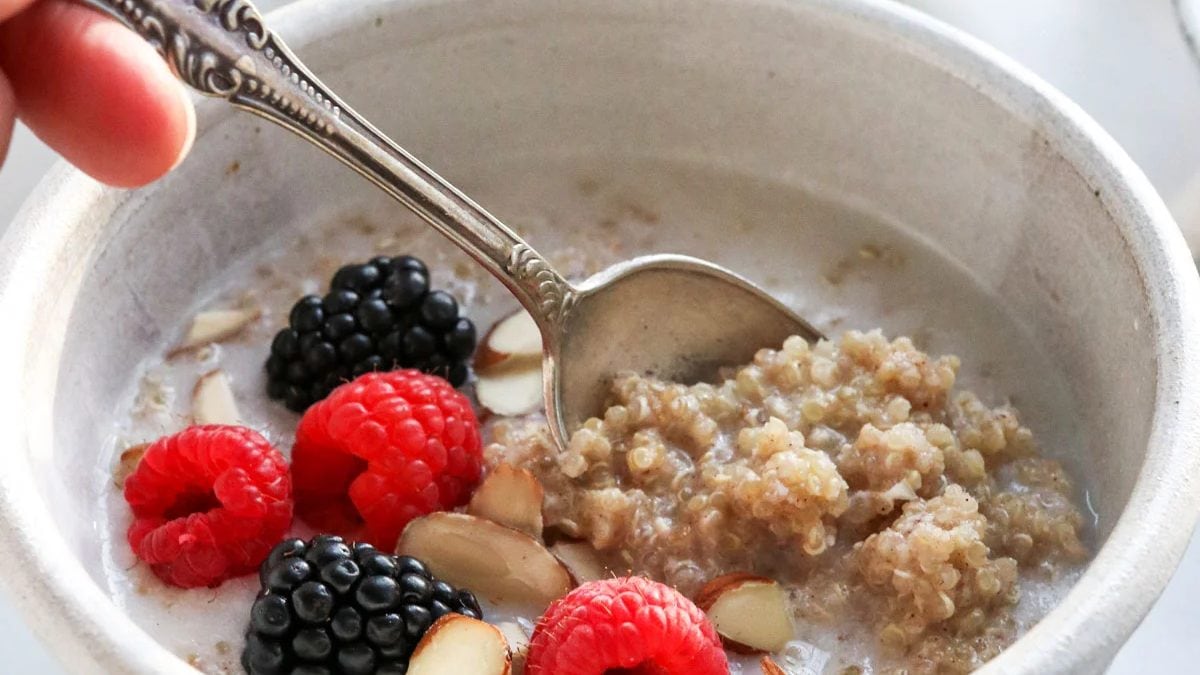Having Morning Fatigue? Avoid Daytime Drag With These 5 Energy-Boosting Foods

We can get the fast boost we need to feel bouncy and invigorated from natural, healthful meals.
These 5 foods can help you feel more energised throughout the day and reduce midday weariness
Do you require numerous cups of coffee or energy beverages to get you through the morning? You won’t feel better if you turn to packaged foods with added sugar for a large dosage of energy. Natural, healthy meals can provide us the quick boost we need to be bouncy and energised. Your body is flooded with nutrients from seasonal, fresh fruits and vegetables that are high in vitamins and minerals, keeping you full all day. Therefore, adding the correct foods to your diet can significantly improve your energy levels and help you prevent daytime fatigue. Listed below are some foods recommended by nutritionist Lovneet Batra that will help you stay energised throughout the day.
5 Foods that Boost Energy to Beat Morning Fatigue:
- Bananas:
Having a healthy serving of potassium, fibre, and vitamins B6 and C, bananas are incredibly nutrient-dense. Bananas are a great source of vitamin B6, which is necessary for turning food into energy. Vitamin B6 is used by your body to break down food and create energy. Magnesium is yet another mineral found in bananas that supports the production of energy. Bananas don’t need to be cooked because they are sweet and simple to digest. Other banana kinds need to be boiled, fried, or roasted before eating. - Quinoa:
Quinoa is technically a seed belonging to the same family as beets, chard, and spinach, although frequently playing a role similar to that of grains in meals. It is a significant plant source of all nine necessary amino acids and is high in protein.Quinoa is a complex carbohydrate that has a considerable amount of dietary fibre. Complex carbohydrates are slowly broken down by the body, providing steady, sustained energy release. Quinoa has a high concentration of anti-inflammatory phytonutrients, making it potentially good for human health in terms of illness prevention and treatment. Quinoa has a higher level of monounsaturated fat than other grains and has only trace amounts of the heart-healthy omega-3 fatty acids. - Yogurt:
Protein, calcium, vitamins, live cultures, or probiotics, which can improve the gut flora, can all be found in high concentrations in yoghurt. These may protect teeth and bones and guard against stomach issues. On a plan to lose weight, low-fat yoghurt can be a helpful source of protein. The immune system may be strengthened by probiotics.Yoghurt contains probiotic microorganisms that support digestion and a healthy gut environment. Probiotics encourage efficient digestion and nutrition absorption, which indirectly helps in the maintenance of constant energy levels. If you want more energy, use plain or Greek yoghurt without added sugar. - Chia Seeds:
Quercetin, an antioxidant found in chia seeds, can lower your chance of acquiring a number of illnesses, including heart disease. As a result of the seeds’ high fibre content, you may be able to lower your blood pressure and, thus, minimise your chance of getting heart disease. Fibre levels in chia seeds are high.Chia seeds are a terrific source of long-lasting energy because of their high carbohydrate, healthy fat, and filling fibre content. - Oats:
Other cereal grains do not have the antioxidants known as avenanthramides that are abundant in oats. These antioxidants improve heart health by lowering inflammation and relaxing blood vessels. Some oats’ soluble fibre can prevent post-meal blood sugar spikes. Whole grain steel-cut oats are high in dietary fibre, both soluble and insoluble, complex carbohydrates, and fibre. Fibre postpones digestion, prolonging energy release and minimising energy troughs.

Atul Tiwari is a seasoned journalist at Mumbai Times, specializing in city news, culture, and human-interest stories. With a knack for uncovering compelling narratives, Atul brings Mumbai’s vibrant spirit to life through his writing.






